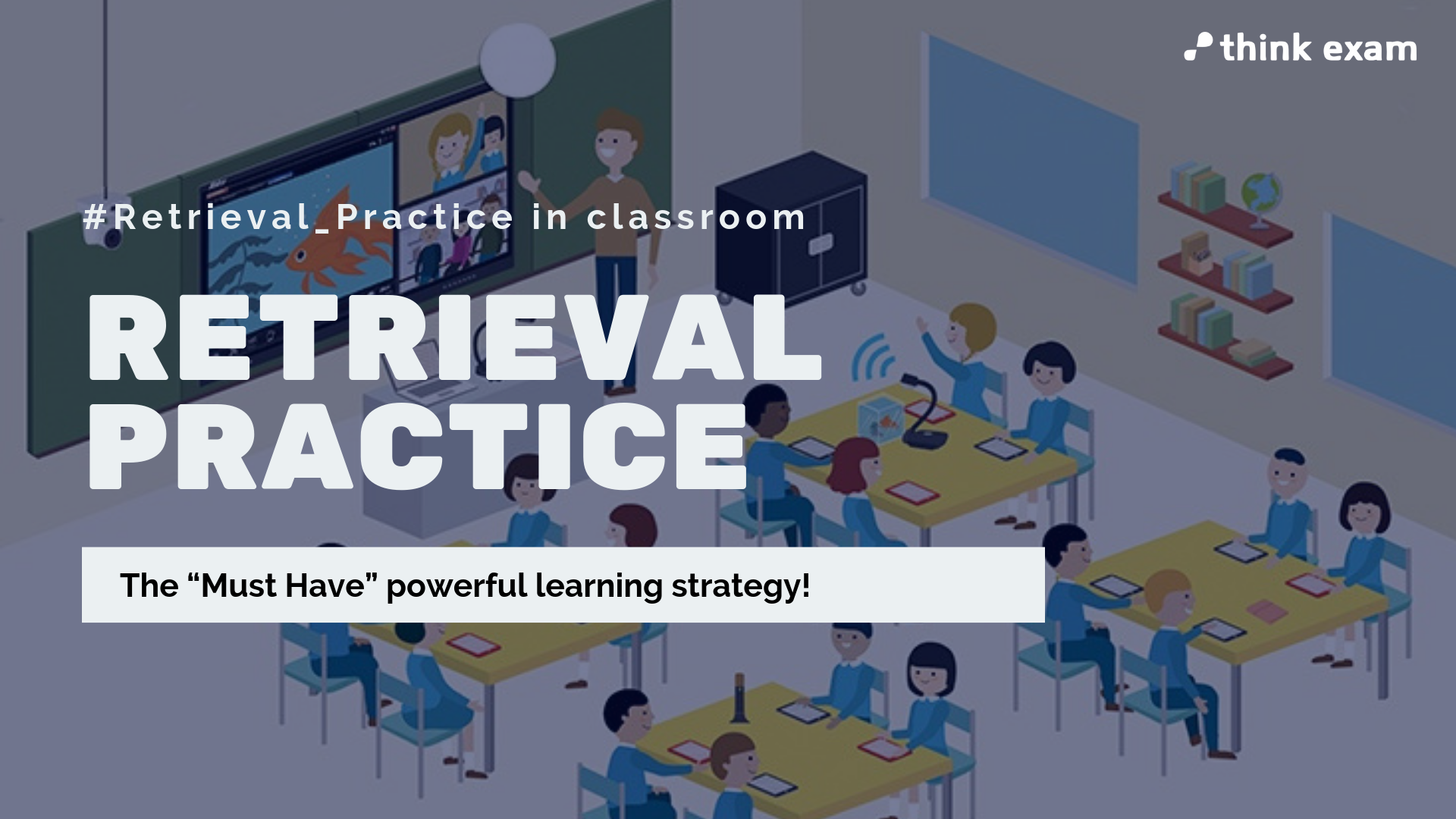“When we think about learning, we typically focus on getting information ‘into’ students’ heads. What if instead, we focus on getting information ‘out’ of students’ heads?”
The process of retrieving memory involves recreating the pathway to the information that is stored, the sequence of neural activities gets reactivated so as to revive a piece of information in the mind. When restudying a concept the focus entirely lies on the already presented information but when retrieval practice is applied then the entire pathway is rehearsed instead of just the end goal.
What is Retrieval Practice?
Retrieval practice is a form of learning strategy where the emphasis is on getting the information out. Through the retrieval act, our memory for that particular information becomes strengthened after which forgetting is less likely to occur. Retrieval practice is a robust strategy for enhancing academic performance without the add-on of any technology, money or extra class time. It is basically based on the concept of –
“The Testing Effect” – “The testing effect is the finding that long-term memory is often increased when some of the learning period is devoted to retrieving the to-be-remembered information.” Formative tests are not much reliable for retrieval practice as they are typecast to judge student’s knowledge, whereas the tests that are a part of retrieval are effective as a way for practice.
Retrieval Practice – Case Study
An eminent study mentioned in the journal science in 2008 demonstrated the distinguished effect of the retrieval practice –
Two researchers, Karpicke and Roediger gave a task to the college students to learn 40 words in the Swahili language and their translation in English. The practice was done through two types of methods – the first one involved study phase in which the words were demonstrated on computer screen with their respective translations. The second one was retrieval phase in which the words in Swahili appeared and the candidates were asked to recall its English translation and then type it.
The goal of this study was to point out which method is more reliable for long term performance- the re-study method or the retrieval method?
One week later when all the participants of this experiment were tested on their memory then following results were obtained-
-
- ⇒ The group that rehearsed through retrieval practice got around 80% of the words right.
- ⇒ The group that rehearsed through study method got around 36% of the words right.
Hence, this study proved that tests that are induced with the strategy of retrieval practice are more effective!
Implementation of Retrieval Practice
- ⇒ Retrieval practice should be considered as a learning strategy and not as an assessment tool.
- ⇒ Make retrieval practice a no-stakes task so as to reduce anxiety and give space to “trial and error”.
- ⇒ Provide retrieval practice on a frequent basis as “practice makes a man perfect”.
- ⇒ Provide spaced retrieval practice, i.e., retrieval practice after few days or weeks after the lesson has been completed.
- ⇒ Combine retrieval practice along with variety of techniques such as: index cards, clickers, quick writing prompts, bell works, etc.
- ⇒ Use retrieval practice along variety of subject areas and grades.
- ⇒ Use various question types- conceptual, fact-based and higher order.
Ways to integrate Retrieval Practice in the classroom
Think – Pair – Share
It is a collaborative learning strategy in which students come together to solve a problem or give answer to an asked question. This technique basically involves two steps- Students need to come up with individual thinking about the topic or an answer and then second step involves sharing those ideas with the classmates.
You can administer both single answer questions as well as open ended questions. The thing to make sure in this technique is to let every student think its original answer first and then form the pair to discuss, this guarantees that every student has gone through the retrieval process.
Quizzes
These can be administered on paper or much better, create it using multiple choice test maker or an online quiz maker which is a more creative and reliable source then paper based quizzes. It is important to remember that these quizzes are just a part of learning strategy and shouldn’t be burdened with grades and strict marking.
Brain dumps
Make students write their accessible knowledge about a concept or question on a piece of paper and let them see in the end what they have missed out and what needs correction. This strategy can be combined with think-pair-share to make it more interesting and effective.
Flashcards
It is a proven effective tool to reinforce understanding, memorize information and retain knowledge. There are various methods to use the flashcard strategy and teachers can even innovate their own methods in whichever way they think the activity can become more interesting and effective.
Conclusion
To conclude, retrieval practice is a highly effective strategy to induce knowledge that can be accessed even after long time of acquiring it. It has been scrutinized through years and its effectiveness has time and again been proven as reliable and strong.
With unique and concept driven regular tests and assessments created through multiple choice quiz maker or online quiz maker this technique can be easily applied in classrooms. It holds benefits for not just students but even teachers who strive every day to make lessons learned and to improve the overall classroom grades.
Try free Online Quiz Maker for retrieval practice in classroom








